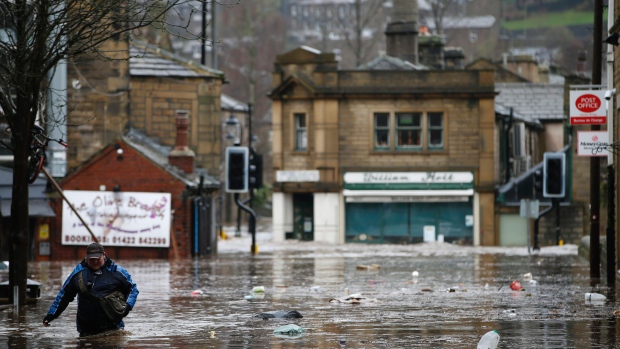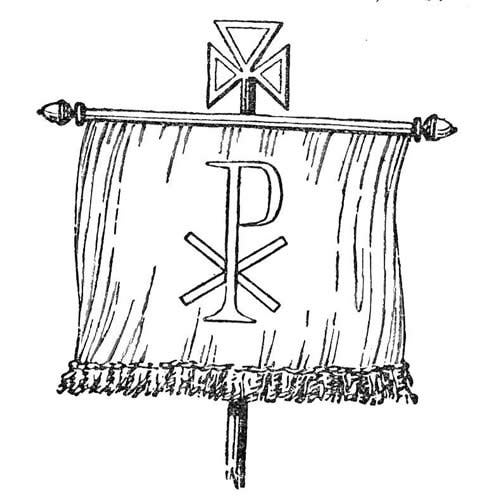Number 23
- March 39 and counting… Nuit Debout and the new French uprising
- The whole system is rotten to the core
- Anti-militarists’ London trial to begin
- The obliteration of European civilization via the subversion of the early Christian church by Roman emperors
- Radical truth behind the fiction
- Money, sex and power: on a sham biography of Guy Debord
- Building an anarchist future – the Bristol call-out
- Acorninfo
1. March 39 and counting… Nuit Debout and the new French uprising

The spirit of resistance has captured the imagination of a new generation in France, as youth-led opposition to neoliberal labour “reforms” has spiralled into full-on rejection of the whole capitalist system on the street and squares.
The situation took on a new dimension after the general strike and day of action on Thursday March 31. There was a call for people not to go home afterwards but to stay on the streets, beginning a wave of overnight “Nuit Debout” occupations that has spread from Paris across France and into the Iberian peninsular, Belgium and Germany.

The March 31 “moment” has also been symbolically extended by the renaming of the following days of the mobilisation as March 32, March 33 and so on.
On Tuesday March 36 (April 5 in the old pre-revolutionary calendar) there was another massive turn-out on the streets all over France, with increased police violence and defiant resistance.


In Paris police fired tear gas and charged the crowds of youngsters who countered with stones, glass bottles and eggs, chanting “police everywhere, justice nowhere!” and “everybody hates the police!”
Police arrested a staggering 130 schoolchildren and students on the day, leading to an evening protest outside a police station involving hundreds of people and more clashes.

It was a similar story in the Mediterranean city of Marseilles. A report on the Mars-info site said that if the initial demonstrations against the Loi Travail (labour law) had felt like the first breath of Spring, the events of March 36/April 5 showed that it had well and truly arrived.
Police charges were resisted, a motorway blocked, traffic thrown into chaos, the offices of the ruling Socialist Party redecorated. And the promise of so much more to come…


In Brittany, the main railway line was blocked in Rennes city centre, while banks, chain stores and the Socialist Party offices were targeted in Nantes.


Another hotspot was in Toulouse, where a wildcat protest and invasion of the city’s railway station was followed by an overnight Nuit Debout occupation of between 500 and 1,000 people.


When an authentic wave of revolt surges up from the collective heart of a population, there is little that can stand in its way.
Like the waters of a mighty flood, it either sweeps away everything in its path or finds a different course that takes it past all obstacles.
This is what we are seeing in France at the moment, where a rejection of the capitalist system has emerged from deep within society, most notably amongst the newest generation.
As we have previously reported in The Acorn, this phenomenon has been growing for some time now and has taken many forms.
The French state, frightened of a serious threat to its power, probably imagined it had found the solution in the wake of the November 13 terror attacks in Paris.
The draconian “state of emergency” has been combined with increased police brutality and the usual “anti-terrorist” media paranoia to try to create a climate in which revolt can have no place.

It worked to some extent with the COP21 protests in Paris, where the anticipated atmosphere of rebellion was significantly dampened.
But when the state started making noises about evicting the ZAD protest camp to make way for a new Nantes airport, the huge response of solidarity and defiance showed that the underlying rebel spirit remained intact.
And with the planned El Khomri labour laws, the “socialist” French government certainly overestimated its own power over the people.
While obedient trade unions failed to make much of a fuss about this serious attack on workers’ rights, others were outraged and the very youthful grassroots campaign emerged out of nowhere to oppose it.
The state has tried to crush it by the use of ugly police violence and general levels of repression which have been made possible by the “state of emergency”.
But even this has not worked. Indeed, the flood waters of revolt have merely swept up the tools of the state’s repression and used them as battering rams against its legitimacy.
As one statement from protesters explained: “What is being born here has little to do with the labour law. This law is just the tipping point. The one attack too many. Too arrogant, too blatant, too humiliating. The surveillance laws, the Macron law, the state of emergency, the stripping of nationality measures, the anti-terrorist laws, the penal reform project and the labour law all add up to a system. It’s one big project to bring the population to heel.
“Everyone knows that what makes a government retreat is not the number of people on the streets, but their determination. The only thing that will make a government retreat is the spectre of an uprising, the possibility of the loss of total control”.

Uncontrollability has proved a key element of the current revolt, with stewards from trade unions like the CGT being very obviously used by the authorities to try to hold back the energy of the youthful revolutionaries during protests.
One eye-witness to the March 31 protests in Marseilles described how the CGT stewards stood between the young protesters and the police with their backs to the cops, “showing clearly whose side they were on”.
As the protesters chanted “All Marseilles hates the police!”, the stewards were mocked and insulted, being called “collaborators” by the young crowd whose hatred for the system also embraces the false rebels of the comfortably conformist Left.
One recent article sees the strength of the wave of revolt as lying in the fact that it is not a “movement” that lends itself to being easily manipulated and recuperated by the status quo.
The behaviour of the union stewards and cops is a tell-tale sign that they are desperately trying to gain some kind of control over a phenomenon which is completely beyond their grasp.
The response of the French state to recent rising levels of dissent has been predictable. It has emerged that at the end of last year it placed a 5 million euro order for hundreds of thousands of rubber bullets and seems determined to try and crush opposition by force.
But resistance is spreading. There is an international call-out for a European Nuit Debout on Saturday April 9 – March 40. A new generation is at war with the system. The tyrants are running scared. Vive la révolution!
Video links
Protesters versus cops in Paris, March 31
Police violence in Paris, March 36/April 5
Man filming police violence is teargassed in face
2. The whole system is rotten to the core
The aftermath of the Panama Papers revelations has been an amusing spectacle, as professional hypocrites from Reykjavik to Westminster wriggle and twist their way out of accusations of tax-dodging.
The #ResignCameron protest called for Downing Street at 12 noon on Saturday April 9 has got to be worth supporting, especially if it feeds in to the European-wide day of revolt.
But the details of the controversy are all a bit of a sideshow for anyone who has long realised that the whole system we live under, and the elite that controls it, are hopelessly and fundamentally corrupt.
The coming and going of individual politicians and political parties changes nothing. And there is no point in trying to reform the system by removing the parts which are corrupt, because the whole thing is rotten to the core. It is, in itself, nothing other than corruption!
To get rid of the corruption we have to get rid of the system. Not just the Tories and the offshore bankers, but the whole of the infrastructure behind them. We have to get rid of the “laws” they have invented to protect their corruption, the courts and judges that rubber-stamp their criminality with legitimacy. We have to get rid of the police forces, the armies and the prisons which impose their corrupt system on us with their “lawful” violence.
We have to get rid of the borders, the states, the flags, the property deeds, the capitalist-friendly ideologies – all the fakery and illusion they have invented in order to crush human potential and freedom.
This is not always an easy thing to say in a society where the slightest, most reformist, most Corbynesque challenge to the status quo is greeted with squawkings of outrage by the ruling clique.
Real change is so unthinkable to this dominant elite that it can’t even be mentioned at all without an accompanying deluge of derision and bile.
Anyone who dares imagine such a world, free from the sordid corruption of power, must either be a naive, uninformed, unworldly, head-in-the-clouds daydreamer or a dangerous, violent and fanatic extremist-terrorist. Or both!
“Things are the way they are and they can’t be changed,” they tell us. “No other world than our world can ever be possible, so just get used to it, work within it, construct your alternatives within the framework we have provided for you”.
This approach can lead nowhere except into an ever-worsening nightmare, as industrial capitalism reduces humanity to slavery and the living planet to a steaming heap of sterile and toxic chemical waste.
Everything has to go! There can be no illusions about this. We have to wipe out the whole stinking mess of a system in its entirety, with no qualms and no hesitations.
Only then will the soil be ready for a new society to emerge in which empowerment begins within each individual and works its way up through the myriad of social relationships that make up a community, growing an organic network of mutual aid and co-operation through which humankind can again become a vital and harmonious part of the living Earth and not a cancer in its flesh.
Instead of the corruption and ugly mess of industrial capitalism we will enjoy the natural harmony of anarchy.
3. Anti-militarists’ London trial to begin

Eight activists accused of disrupting one of the world’s largest arms fairs are due to go on trial in London from Monday April 11.
And their defence will include evidence from high-profile expert witnesses Andrew Feinstein, Sayed Ahmed and Oliver Sprague.
The campaigners are accused of having disrupted the set-up of the DSEI arms fair at the ExCel Centre in London last September by blocking the access roads to the site with their bodies, and by locking themselves to the gates.
Defendants, including Angela Ditchfield, Tom Franklin and Isa Al-Aali, were arrested on September 9 and 10 2015, accused of obstructing the entry of tanks and lorries by blocking the roads with their bodies.
Multiple defendants are accused of having blockaded the road during the Stop The Arms Fair main day of action on September 12; of which three are accused of blocking the East gate of the ExCel centre by locking themselves to the gate with arm tubes and two are accused of obstructing the West gate by D-locking their necks to the gate.
The DSEI (Defence & Security Equipment International) arms fair exists so that arms buyers and sellers can come together, network and make deals, and it takes place every two years in London’s Docklands. DSEI is jointly organised by Clarion Events and the UK Government. Buyers include countries involved in conflict and from human rights abusing regimes.
In September 2015 over 1500 exhibitors attended from around the world, including most of the world’s largest arms companies, displaying arms ranging from rifles to tanks, fighter jets, battleships, missiles, military electronics, surveillance and riot control equipment.
The expert witnesses have supplied written reports and will attend in person to give oral evidence for the defence concerning the nature of the DSEI arms fair:
Andrew Feinstein is a former ANC Member of Parliament in South Africa who resigned in 2001 in protest at the government’s refusal to allow an unfettered investigation into a £5bn arms deal that has been identified as the biggest corruption scandal in South Africa’s history. He went on to author The Shadow World, a book described by the Washington Post as “possibly the most complete account [of the global arms trade] ever written.” He is currently Executive Director of Corruption Watch UK, an NGO which researches the global arms trade and details and exposes weapons violations, bribery, corruption and other malfeasance.
Oliver Sprague is Programme Director of Arms Control and Policing at Amnesty International UK. He has worked on technical aspects of UK arms export controls for over 20 years. Sprague gives regular oral and written evidence to the Parliamentary Select Committee working on arms export controls. He has given expert evidence on breaches of export control legislation at DSEI (and other defence exhibitions) on numerous occasions.
Sayed Ahmed is Director of Advocacy at the Bahrain Institute for Rights and Democracy (BIRD), a London-based NGO which seeks to improve human rights and accountability in Bahrain.
The defendants themselves will also seek to give personal testimony of their reasons for opposing the arms fair and the catalogue of oppressive regimes that shop there.
This will include a firsthand account from a Bahraini activist who was tortured during the Bahraini uprising; an account from a Kurdish Solidarity activist with experience of Turkey’s brutal repression and attacks on Kurdistan; and an anti-militarist activist who has previously sought to privately prosecute two arms companies for the promotion of illegal torture weapons at DSEI 2013.

The defendants will be using the defence of necessity, arguing that their actions were justified since they were intended to prevent greater crimes including:
* The sale of weapons to internally repressive regimes including Bahrain and Saudi Arabia;
* The sale of weapons to countries imminently at war and overtly complicit in ongoing war crimes in Yemen, Kurdistan and Palestine;
* The sale of weapons to regimes that have been widely accused of arming ISIS; and
* The promotion for sale of weapons that are designed specifically for torture or banned under international law for their capabilities concerning the mass indiscriminate killing of civilians.
Defendant Tom Franklin, 57, of Clifton Without, York said: “It is intolerable that the government is supporting the sale of illegal weapons and weapons being used to kill ordinary people from the West Bank to Yemen and Sudan. ‘The only thing necessary for the triumph of evil is for good people to do nothing.’ So I had to try to prevent evil”.
In a joint public statement,the Defendants Campaign said: “We know that the tools of the type promoted for sale at DSEI will be used to reinforce apartheid, to surveil and brutalise communities from Brixton to Bahrain, and to perpetuate the border regime that kills thousands every year – as European states wage a war against the refugees they helped create.
“We know that weapons promoted at DSEI are used to incinerate whole families at the touch of a button in places from Palestine to Pakistan. We know that such weapons will continue to devastate landscapes and do permanent environmental damage across the globe. And that these weapons have been used in systematic forced evictions and ethnic cleansing; such as against the people of Kurdistan.
“And we know that weapons of the type promoted at DSEI will be used to torture and repress people based on their political views, faith, gender, or sexuality in places like Saudi Arabia. Sometimes the tools of oppression are literal – and they are for sale at DSEI arms fair.”
The week-long trial is listed to start on Monday April 11 2016 at Stratford Magistrates Court in London. The defendants will be represented in court by Kellys Solicitors of Brighton, Hodge Jones & Allen of London and Bindmans Solicitors of London.
A roundup of the week of direct action against DSEI:
https://www.stopthearmsfair.org.uk/week-of-action-round-up/
More information about the DSEI arms fair can be found here:
www.stopthearmsfair.org.uk/about/dsei/
4. The obliteration of European civilization via the subversion of the early Christian church by Roman emperors
by Rob los Ricos.
Having been involved with various US revolutionary organizations from the age of 12, Rob was arrested at a Reclaim the Streets festival in Eugene, Oregon, on June 18 1999. He was accused of throwing a rock at a cop, and was subsequently beaten by police. He was ultimately charged with rioting, first degree assault, and second degree assault and was given a nearly 8 year prison sentence.
This is the oldest symbol for the Christian faith. It may also be the oldest symbol of divine authority in what passes as “western” civilization.
There’s a lot more to say about this particular symbol, but for now let’s focus on its elegant simplicity. Because it was an upstart religion and illegal in the Roman empire, Christians needed a secretive way to identify one another. So, when wanting to inquire about someone’s belief, a Christian could draw half the symbol in the dirt with a finger. If the other party involved finished it, they recognized one another as part of the Church. If not, no harm done, the image quickly erased, easypeasy.
After the church was decriminalized, a new symbol was bestowed upon the Romanized religion, the cross.
The ruler of the eastern provinces of the Roman empire, Constantine, supposedly had a vision as he tossed and turned in his sleep, worried about an upcoming battle. Either that, or he was given a sign from heaven on his way there. More likely he just made this story up.
Regardless of the inspiration, Constantine was given a sign from some god or another – I’m not sure they ever specify – which he regarded as a license to kill. The two symbols combined in the banner above allegedly signify “by this sign, conquer.”
From this moment on, Christianity was not a religion of love, tolerance, sharing, and community. From this point on, Christianity was some unseen god’s holy scourge, come to rid the world of sinful non-believers with sword and fire. Ever notice how much Catholics have enjoyed burning people alive over the centuries?
The symbol of the cross eventually morphed into the more recognizable “+” form, then further transformed into… something awful.
This is the image of Jesus the ancient Churches like. It’s traumatizing. It’s meant to be.
The message sent by the authorities: “See that? There’s your god of love for you! He’s dead! If we killed your god, do you think we’ll have any mercy on you?”
Christians ever since have been very enthusiastic in slaughter, genocide, rape, and plunder. Rape, by the way, is not prohibited in the bible. There are a number of responsibilities spelt out for rapists in the old testament, including an obligation to marry the victim. I do not believe the victim is given a say in the matter.
And in the new testament, women are encouraged to be submissive to men.
Constantine undertook a war to eliminate the Zoroastrian religion. Their priests were known as Magi, and were mentioned with quite a lot of respect in the telling of Jesus’ birth.
The Romans killed every living Magi, and burned or otherwise destroyed their teachings.
I can’t help but think this was done because what the Magi taught was self-directed enlightenment and inner growth. What the Christian Church had decided on as its doctrine – in the council of Nicea Constantine sponsored ten years prior – was batshit crazy by comparison. Constantine was eliminating the competition.
He never made Christianity the official state religion (that would come later), even after his own “conversion.” As mentioned above, the conversion affected the Church more than vice-versa. The emperor has remade it in his own image.
Constantine’s end goal was likely to proclaim himself as the sun god, sol invictus, and Roman coinage, as well as works of art and architecture, portrayed him as Sol’s companion. He never did get around to announcing his own divinity. He did, however, make Sun day the official Christian day of rest and adulation.
Subsequent emperors burned the library of Antioch, and later banned teaching of science in the entire empire. People of other faiths were prohibited from being officers in the army, and a heretical Christian sect – the Manicheans – were exterminated for providing a sane, believable doctrine for Christians.
And just to rub a little salt in the wounds of a bleeding populace, pope Dumbass I outlawed public baths across the empire. Less than century later, unhygienic conditions contributed to a severe outbreak of bubonic plague.
The Church outlawed all forms of date-keeping, navigational charts and equipment, and any reference to the world as being spherical. No one believed the world was flat and the earth was the center of the universe. People started pretending to believe it when anyone saying otherwise was burned alive in public squares.

The Church also outlawed all non-Christian schools and ordered the obliteration of all knowledge kept at the great library of Alexandria – perhaps the greatest repository of human knowledge ever assembled in one place.
Not only did they destroy ancient scrolls, books, and other writings, they massacred everyone who had learned to read. Millions of tradesmen, artisans, and craftsmen were slaughtered.
A holocaust (burnt offering) of millions of people practicing another “heretical” – i.e. non-Roman – form of Christianity, the Donatists in North Africa, was ordered. An entire region depopulated. Every man, woman, and child.
The church decreed that every book not written by Christian hands be destroyed.
“There is another form of temptation, even more fraught with danger. This is the disease of curiosity. It is this which drives us to try and discover the secrets of nature, those secrets which are beyond our understanding, which can avail us nothing and which man should not wish to learn.”
–Augustine (354 C.E.- 430 C.E.)

War was declared against the cultures of Egypt and Greece. The ancient library of Athens was torn down, all the scribes and priests burned alive. Roman facades were put on ancient temples. Others were torn down and replaced with Christian churches.
Ireland was likewise invaded, but the mercenary Patrick was not up to the task and relented after merely massacring half-a-million people. He reported to Rome that the “serpents have been eliminated,” but he was really giving the Celts some time to hide their knowledge.
Just around 200 years from the time Constantine remade Christianity for his own bloody purposes, the population of the ancient European world had plummeted drastically, and human civilization set back thousands of years. Some estimates claim over 110,000,000 people had died due to conflict, sacrifice, disease, and hunger.
AND WE HAVE NO IDEA WHAT WAS LOST AS A RESULT. We can only guess, based on physical evidence left behind.
5. Radical truth behind the fiction
Fiction is not always the most obvious means through which to present a political and metaphysical philosophy – even a great novelist such as Leo Tolstoy turned his back on the genre in order to express himself directly to the public through essays.
So it was a little surprising to find that writer Paul Cudenec, who has so far confined himself to non-fiction works such as The Anarchist Revelation and Forms of Freedom, had decided to launch himself into the world of the novel.
Having read The Fakir of Florence (Sussex: Winter Oak, 2016), it becomes clear what attracted him to the idea. Rather than running away from his root message into the distraction of fiction, he has used the form of a novel to present this message in an imaginative and entertaining context.
On the surface, the book revolves around the story of a kind of anarchist mystic who turns up in Florence during the Renaissance, but there is much more to it than that.
Cudenec takes the opportunity to examine the corruption of art by money, the recuperation of opposing philosophies by the dominant system, the artificiality of modern life and thought, the nature of artistic self-expression, the subversive potential of godless spirituality, the need for individuals to accept existential responsibility and so on.
There is a real richness of intelligent reflection here, freed from the usual restraints of linear essay composition and allowed to flow and intertwine in a way that opens the mind of the reader to their own contemplation.
The book’s subtitle, “A Novel in Three Layers” is an important guide in two ways. Firstly, it makes it clear that the three distinct threads within the book are all part of one overall thing. Secondly, it confirms that this overall thing is a work of fiction.
I say this because the first “layer”, in which an English writer in Florence visits various sites in the Italian city, grumbles about tourism and offers layman’s commentaries on the history of art, reads initially like a non-fiction travel diary.
Likewise, the second layer, an account of the “fakir” in 15th century Florence, seems very much like historical analysis.
Only the third layer, a series of metaphorical tales from some fantastic and remote age of legends, is obviously a work of fiction.
This is all a deliberate piece of psychological trickery, as Cudenec makes clear, because it is in fact in the third layer that the greatest degree of “reality” can be found!
He has Perantulo, his most “unreal” character, declare: “Even if I were an invented character presented by a fictional story-teller in an account that was itself a mere fabrication-within-a-fabrication, my words could contain more truth than a lifetime of proven facts listed by someone whose solid physical existence was completely beyond dispute!”
This notion of an authentic inner “reality” or “truth” is key to Cudenec’s brand of anarchist metaphysics, which finds its inspiration in the likes of Gustav Landauer, Aldous Huxley and Herbert Read.

Ultimately it is an extension of the “realism” of neo-Platonists like Plotinus, in which the inner essence behind the superficial everyday world is considered more real than physical form. So when Cudenec undermines the fictional elements of his own creation, he is making the point that the form was always inherently false in any case.
The final sections of the novel have a compelling pace to them. There is a satisfying sense of convergence, as what appeared to diverse and unrelated elements prove to be nothing but different aspects of the one thing.
The story’s surprising conclusion can no more be explained away in rational terms than can the plot of films like Mulholland Drive or Donnie Darko, but it is perhaps best summed up (without giving anything away!) by the last few lines of the novel.
“And with that he doubled the speed of his whirling, tripled it, then multiplied it beyond the imagination of the sharpest mathematician. Perantulo whirled at such a speed that he caught up the passing of time itself, overtook it and then looped right round to approach it from behind, like the snake that devours its own tail. And then this hoop of time likewise began to spin, faster and ever faster, until it too had become a blur like the golden coin on the tabletop and until the vanity of its fake structure could no longer hide the all-embracing glory of its infinite and eternal fire”.
R. Silva
The Fakir of Florence, published by Winter Oak, can be ordered online here and will shortly be available from Active Distribution.
6. Money, sex and power: on a sham biography of Guy Debord
A new “biography” of the revolutionary thinker Guy Debord is nothing but a deliberate and dishonest attack on him and the ideas he stood for.
That is the damning verdict from writer Gianfranco Sanguinetti, who worked closely with Debord in the Situationist movement.
Donald Nicholson-Smith’s English translation of Sanguinetti’s piece on Jean-Marie Apostolidès’ “sham biography” Debord le Naufrageur (Debord the Wrecker), can be found here, with the French original here.

Sanguinetti makes it clear that Apostolidès’ book has to be seen in the context of a dominant culture that denies legitimacy to any thinking that strays outside its narrow and shallow confines.
He writes: “Nor is it only authentic opponents that must be destroyed, but also all those who may have existed earlier, whose memory and model have to be erased, demolished or besmirched.
“Every tendency to revolt and desire for change among younger generations must be thwarted and struck down, and all precedents for them and the very memory of those precedents smothered.
“Any conceivable emulation has to be forestalled. All Walter Benjamins driven to suicide. Lists of subversives drawn up. Genuine rebellions, along with genuine rebels, crushed once and for all, eliminated, denounced, smeared and pilloried in view of the absolute need to highlight only deliberately fabricated and fetishized adversaries”.
As far as Apostolidès’ book itself is concerned, Sanguinetti writes: “Let me say straight away that this work, as I shall show, apart from being a crashing bore, is in no way a biography. I spent a mere three hours with it, for after all there is no need to drink five hundred litres of wine to tell whether it is good or bad – or indeed to know that it is not wine at all (as, mutatis mutandis, is the case here).
“This is in no sense a biography of Guy Debord, but rather a long-winded piece of investigative journalism directed against Debord that offers only hostile ‘testimony’ and not a word about Debord’s work, about his art and his time, about his cinema, or about his courage in a position of virtual isolation. So the book is of strictly no value to historians. It is simply not a source. The author’s use of documentation is deeply dishonest, for he selects only what he deems inculpatory.
“The Society of the Spectacle is one of three books of the twentieth century, alongside George Orwell’s 1984 and Aldous Huxley’s Brave New World, that are still vital to any understanding of the twenty-first.

“Apostolidès does not so much as mention the Strasbourg scandal and its crucial influence as a catalyst of May 1968. That struggle, its stakes and its seriousness, find no place in his book. The author also completely ignores the proliferation of Situationist theories and practice. Not a word, for instance, about what was perhaps the first work of street art or guerrilla art, our reinstallation of a statue of Charles Fourier in Place Clichy, Paris, in 1969, the original having been removed by the Nazis.
“Nothing, of course, of the magnificently successful creation of situations by the Yesmen; or by the Russian Voina group and Pussy Riot, who acknowledge their debt to Debord and the Situationists; nothing either of the Czech Stovoven group, or Banksy, or Kommunikationsguerilla, or the hacktivists, or a host of others too numerous to cite here who have put the Situationist legacy to practical use.
“Not to mention the wide-ranging influence exerted by the Situationists not only on all subsequent critical social theory but also on various kinds of détournement, class struggle and sabotage practised in factories and offices in Italy and elsewhere. This is the sense in which the Situationist International was an avant-garde. All of this, for the professor, is a complete blank. So much for scholarship.

“Since the author is kind enough never, even on a single page, to conceal his wish to denigrate – the sole point, I have to concede, upon which he is sincere and disciplined – he renders everything he mentions vulgar, which once again speaks volumes about himself: wherever you open the book, you encounter nothing but the profoundly sordid, mean-spirited, or obscene. Henry Miller put his finger exactly on this kind of mentality: ‘Obscenity exists only in the minds that discover it and charge others with it’.
“Were he called upon to discuss the Odyssey, Apostolidès would never get beyond the fleas on Ulysses’ head, because he can never perceive anything above his own level, and everything is therefore brought down to that level.
“Such individuals may teach at a prestigious university but they are incapable of producing a real, rigorous or in any way serious historical and critical analysis: all they can muster is either the aforesaid unctuous praise or spineless outrage.

“Professor Apostolidès will continue in any case to stand as a shining example of everything an honest and disciplined researcher should avoid – a concrete instance, if ever there was, and a caution to every student, of the disastrous mingling of those two forms of dishonesty, both on shameless exhibition in a police report poorly disguised as a work of historical scholarship.
“This book is hopelessly lacking in conviction, vigour, energy and freshness. It reads like work for hire, written on commission, a failed attempt to put Guy Debord and an entire movement in the stocks, something a world away from a faithful, legitimate and honest critique. Still, I draw comfort from its existence, for it signals that despite all their faults the Situationists continue to be a beacon of insubordination and a nightmare that still haunts the sleep of an era, a true successor to theirs, which cannot bear to have enemies that it has not manufactured for its own ends”.
Full article:
http://cipmarseille.com/cahierdurefuge/sanguinetti-eng/book.swf
See also:
Paris 13.11: Morale Operation by Gianfranco Sanguinetti
7. Building an anarchist future – the Bristol call-out
The 8th Bristol Anarchist Bookfair is being held on Saturday April 30 2016, from 11am to 6pm, at Trinity Centre, Trinity Road, Bristol, BS2 0NW, with the The Radical History Zone just 5 minutes down the road at Hydra Bookshop. Here is the call-out from the bookfair collective:
Every year seems to bring more bad news. The poor have to pay for the mistakes of the rich through unjust schemes like the Bedroom Tax, while the sick lose their benefits to Work Capability Assessments and the like, leaving suicide rates on the up. Those who are sanctioned have all income stripped away, and governmental Workfare schemes push businesses to choose free labour over paid staff.
The cuts, as predicted, have hit the poorest hardest, with many having to choose between heating or food. Public services like care homes and day centres continue to vanish. The NHS is being ripped apart and sold off, taking away vital services, such as mental health, from those who need it most. Massive school budget cuts lead to unqualified teaching staff. Workers must work longer and harder for less, many with the uncertainty of zero-hour contracts and part-time work, with no hope of a pension.

At the same time farmers are given false hope through the murder of hundreds of endangered badgers. Global climate change has seen droughts lasting years in many countries, with the natural result of unsustainable export-crop agriculture leaving only harvest failure and starvation. Extreme weather patterns have increased flooding everywhere, and entire ecosystems move closer to the brink.
At the same time ‘our’ government’s policies only heighten the threat of climate change through fracking and airport expansion. The weapons trade, wars for oil, and extreme right-wing politics have stirred up conflict throughout the middle east and beyond, pushing ordinary people towards drastic decisions to try and save their lives.
There is hope though – people have been fighting back. Whether that is through strikes, direct action or the taking up of arms. Capitalism isn’t working. Reformism has failed. People want change.
But if capitalism collapsed tomorrow, we ask ourselves:
Would we be ready?
As anarchists, we spend a lot of time fighting against oppressive structures, whether it be patriarchy, polluters, bosses, or weapons manufacturers. But we also discuss our hopes and dreams for a new, more equal world – that of anarchism. We have developed concepts around mutual aid, solidarity, co-operation, direct action, equality, and non-hierarchical organisation, but how do we put these into practice?
At this year’s Bristol Anarchist Bookfair, we want to create a safe space for people to explore these ideas, whether you are new to the concept or an old hand. How would we do health care, education or food production differently? How will we create a more equal society, so that people will feel safe and accepted whatever their sexual orientation, gender, ability, race or age?
What about oppressive behaviour; how will we hold people to account for their actions if we abolish prisons and the police? How will we distribute resources worldwide? Who will do the cleaning, road maintenance, sewage treatment and other ‘dirty work’?
If revolutions happen tomorrow we won’t have all the answers, and an anarchist society will not occur overnight – there will be ongoing change & adaptation. But the core principles of anarchism provide us with the building blocks for the future, and how to get there. Let’s be ready!
In love & solidarity – Bristol anarchist bookfair collective 2016
- A reminder that Sheffield Anarchist Bookfair is being held on Saturday April 23 2016 from 10am to 6pm at Showroom Workstation, 15 Paternoster Row, Sheffield, South Yorkshire S1 2BX.
Anti-fascists held a successful mobilisation against extreme-right wingers in Dover on Saturday April 2. Describing the latest victory over the fash, antfascistnetwork.org reports: “They had very low numbers, and it took the combined protection of about 5 different police forces for them to march 500m through town, and even then we held them up for nearly 2 hours! All this plus the fact that we proudly marched an aid convoy to Calais through the centre of town right under their noses, and they couldn’t do jack about it”.

* * *
The British state is using the pretext of a terrorist threat to flood the country with hundreds more armed police. The Independent reports that the 400 gun-wielding cops will be “stationed across the country poised to deal with a Paris-style terror attack” and that “the beefed-up network of armed police units is intended to complement military contingency plans already in place to deploy up to 10,000 troops in the event of a terror attack”. Far from being a question of the state “protecting the public” from terrorism, as the authorities like to claim, the whole story is about the state using the threat of terrorism to protect itself better from the public. The armed cops are being installed to deal not so much with a “Paris-style terror attack” as a “Paris-style revolt” – the whole charade being about frightening and beating the population into submission.
* * *
An invaluable new resource for admirers of the great German-Jewish anarchist Gustav Landauer has gone online. The bibliography gathers primary as well as secondary literature, it mentions all known texts and talks by Landauer. There are already more than 1,600 items, including Landauer’s own writings as well as scholarly articles, monographs, book reviews, novels, and newspaper articles dedicated to Landauer or simply mentioning his name. It can be found here.

* * *
“It’s necessary for all of us to make a journey back to enchantment. Enchantment is a facility that we are born with, but lose as we grow older,” writes author Sharon Blackie in an inspiring online article. “We forget that we live on an animate earth, and so find ourselves lonely and alienated. We no longer know how to belong. We find meaning only in ourselves and the gadgets we’ve created to amuse us, and tell ourselves and our children that this is a necessary part of becoming ‘grown-up’. So it is that we find ourselves inhabiting a Wasteland, and the journey out of this Wasteland is a journey towards re-enchantment”.
* * *
The FBI is ordering high schools across the USA to report students who criticize government policies and “western corruption” as potential future terrorists, reports Infoshop News. The guidelines warn that “anarchist extremists” are in the same category as ISIS terrorists.
* * *
A reminder of a May Day invitation in London, as featured in Acorn 22. Ancient energies and modern anger will be coming together in a the fourth anti-gentrification Fuck Parade from 6pm on Sunday May 1 2016 at One Commercial Street, London E1 7PT. “Dress code: smart casual, with masks“.
* * *
Acorn quote: “It is as simple as that: we have lost touch with things, lost the physical experience that comes from a direct contact with organic processes of nature… We know it – instinctively we know it and walk like blind animals into a darker age than history has ever known”.
Herbert Read, The Contrary Experience
(For many more like this, see the Winter Oak quotes for the day blog)
—–
If you like this bulletin please tell others about it. Subscribe by clicking the “follow” button.
—–
Back Issues
Follow Winter Oak on Twitter at @WinterOakPress

































One thought on “The Acorn – 23”